Hey there, service-based small business owners! If you’ve got employees, offering great benefits is one good way to keep them happy. To add to that, have you considered giving them tax-free discounts on your services? You can do it and still play by IRS rules – here’s how:
No-Additional-Costs Services
This means, the service you’re offering them has to be something you already provide to paying customers. It also means it doesn’t cost you much more than what you’re already spending to provide them to your customers. For example:
- If you’re a designer, offering your team consultations during regular working hours without extra cost works
- As a consultant, providing your employees free sessions can qualify, especially if you can do it during times when you don’t have client appointment
- For coaches, giving free coaching sessions to your team is a great perk, particularly if they can be scheduled during non-peak hours
- If you’re a yoga teacher, offering free yoga classes is perfect if they are integrated into their regular schedule
- As an alternative healthcare provider, giving free treatments to your employees can count, especially if its during times when there are no paying clients
- Landscapers and house cleaners, If you work alone, free home cleaning or yard care can totally count, again, scheduling it into your regular working hours
Employee Discounts
These are different from no-additional-cost services because they’re about giving employees a discount on your services rather than offering them for free. The IRS allows you to offer a tax-free discount of up to 20% on the price of your services. Any discount above this is considered taxable income for the employee.
Fringe Benefits
This type of benefit is offered above and beyond an agreed-upon wage or salary. Providing a car for example, would count as a fringe benefit. You are considered the provider of the benefit even if a third party, like a client of your business, provides the fringe benefit to your employees. Think daycare service for your employee’s kids in exchange for services from your business. Your employee is the recipient of the benefits, even if a friend or family member utilizes the fringe benefit. Caution: fringe benefits are only tax-exempt if they are explicitly excluded by tax law. Check out IRS Publication 15-B for your guide on this.
Compliance and Best Practices
Chatting with a tax pro can help you steer through the complexities. Just be sure to keep your benefits package current with IRS changes. Get feedback from your team to make sure they value the benefits you’re offering. And lastly, make sure they know the benefits you’re offering and how to use them.
By following these IRS rules, you can give your employees valuable perks, stay compliant, and foster a positive and dynamic work environment. And when it comes to keeping your financials in check, That’s where I come in. As a Certified Bookkeeper and collaborative partner, I can help you manage your accounts, ensure accuracy, and free up your time to focus on what you do best. Good bookkeeping keeps your business running smoothly by providing you with the financial clarity needed to make informed decisions, avoid costly mistakes, and stay compliant with tax laws.
Ready to take your employee benefits and bookkeeping to the next level? Let’s Get Acquainted – schedule a complimentary call with me today.



